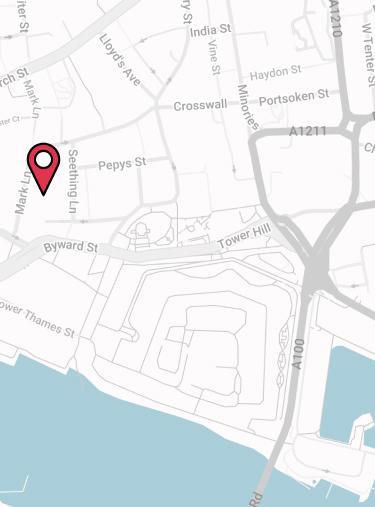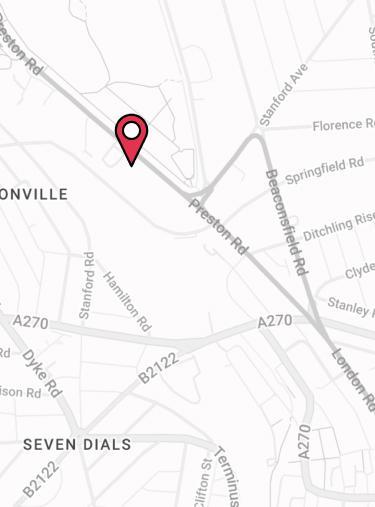
Considering Accident and Sickness Insurance to protect against any loss of income? While there is no way of knowing if you may suffer an accident or become too unwell to work, the best thing you can do is try to prepare for such eventualities. With suitable insurance in place, you can protect yourself and your family.
To find out how Accident and Sickness Insurance works, what it covers, and how much it costs, read our specialist guide.
What Is Accident And Sickness Insurance?
Accident and Sickness Insurance is a type of Income Protection (IP) designed to cover your monthly earnings if you can’t work due to accident, illness, or injury.
Most policies:
- Cover up to 70% of your pre-tax income (this can include dividends if you’re a company director)
- Offer deferred periods that start paying out after as little as 1 week of work absence
- Pay out long-term (covering you until your chosen retirement age)
- Use the ‘own occupation’ definition, meaning you’re covered if you can’t do your specific job
- Have no automatic exclusions. What you are and aren’t covered for is determined by your pre-existing medical history.
Why Is Personal Accident And Sickness Insurance Important?
Accident and Sickness Insurance is an important policy to have. Life is unpredictable and being unable to work because of an accident or illness can have a significant financial impact.
- Helps to cover essential outgoings, e.g. mortgage or rent payments, utility bills and groceries
- Gives you time to recover without worrying about your income.
It’s worth thinking about what would happen if you were off work for a long period? How would you cope financially? Do you have any savings to fall back on? Accident and Sickness Insurance offers a financial safety net in difficult times.
SPECIALIST TIP 🤓
According to consumer group Which?, Accident and Sickness is the one policy every working adult should consider.
How Does Sickness Insurance Work?
When setting up Accident and Sickness Insurance, you’ll choose from a variety of options. These will form the foundations of your policy. Once you’ve got the right cover for your needs, you’ll pay a monthly premium.
In the event of a successful claim, you will have to wait out the deferred period before you start receiving the benefit from your plan. Payouts then typically continue until you return to work, reach the policy cease age, or retire.
Policy Factors To Consider
There are several factors to consider. These can affect your coverage and influence the monthly premium, including:
Level Of Cover
This is the monthly benefit amount you receive. You’re able to protect up to 70% of your gross income, depending on the insurer. How much cover you need will depend on your situation.
SPECIALIST TIP 🤓
The maximum benefit isn’t always the most suitable option for your needs. It’s best to work out how much your average monthly outgoings are and align your coverage to that sum.
Length Of Cover / Policy Cease Age
This is how long your policy is active for. When you set up Accident and Sickness Insurance, you’ll choose an end date for your policy (commonly known as the policy cease age). Most Accident and Sickness insurers offer cease ages all the way up to 70.
We recommend aligning this with your expected retirement, as you’re likely to have other income streams, such as your pension.
Payout Period
The payout period refers to how long you’ll receive the benefit. The length of this depends on the type of policy you choose.
Short Term Income Protection only pays out for up to 2 or 5 years per claim. While long-term policies pay out for as long as possible. Often this is right up until your policy cease age if you’re not able to work again. Long-term cover is more comprehensive, however, it costs more than short-term policies.
Deferred Period
The deferred period is the amount of time you have to wait before the policy pays out after you stop working. It’s also called a waiting period.
Insurers offer deferred periods as short as one day and as long as 52 weeks (12 months). This should match up with any company sick pay benefit you get or any other financial means you can rely on. For example, if you have one month’s worth of savings, a 4 week deferred period is the best option.
Indexation
You can index-link your policy to ensure the benefit you’re entitled to aligns with inflation. By opting for indexation, your benefit has the same purchasing power over its lifetime.
Without indexation, you may find that the sum you’re entitled to doesn’t retain the same monetary value in 10 years’ time as it does now. This is a great option, as it ensures the payout you get isn’t eroded by inflation.
Including Unemployment Cover
Some insurers offer Accident, Sickness & Unemployment (ASU) policies. These combine Accident & Sickness Cover with Unemployment Insurance in case you’re made redundant.
This will pay out for 12, 18 or 24 months if your employer makes you redundant, offering short-term reprieve, so you can continue to meet your financial commitments while you look for another job.

The sickness cover on unemployment policies is often inferior to traditional Income Protection Insurance. For this reason, we recommend buying comprehensive Accident and Sickness Insurance policy.
Alex Weir
Independent Health & Protection Specialist
Type Of Premium
When setting up Accident and Sickness cover, you’ll pick a type of premium. You have three to consider:
- Reviewable premiums
Here the insurer can adjust premiums as they see fit. These changes may be due to your increasing age or the insurer’s attitude towards risk based on average claims and wider economic factors. Your monthly premiums could rise significantly over time - Guaranteed premiums
These are fixed for the life of the policy. These do work out more expensive than reviewable premiums initially, but as they’re fixed, it’s often cheaper long term - Age-banded premiums
Age-banded premiums rise annually by a preset amount laid out in your policy documents. The increase is solely linked to your age and the growing risk of you claiming as you get older.
GOOD TO KNOW 🤓
Leading insurer LV= had an average claims length of 5 years, 3 months in 2022, making long-term protection a no-brainer.
Income Protection Client Stories
What Does Accident And Sickness Insurance Cover?
Accident and Sickness Insurance covers a percentage of your income and pays out a tax-free monthly benefit if you’re unable to work due to accident or sickness.
Your policy will cover you for:
- Accident or bodily injury
- Sickness or illness that results in sick leave from work.
For an insight into what policyholders have previously claimed for, leading insurer LV= detailed the most common reasons for claims in 2022. These were:
- Musculoskeletal including back problems, accidents and fractures (25% of claims)
- Cancer (20% of claims)
- Mental health issues (12% of claims).
Own Occupation Cover
It’s best to set up your Accident and Sickness Insurance under the own occupation definition of incapacity. This is a definition insurers use to determine whether you’re incapable of working in your job and entitled to benefits.
Own occupation cover ensures your policy pays out as soon as you’re unable to work in your specific job role. You can choose the suited occupation or any occupation options, but this limits your likelihood of a successful claim.
What About Unemployment And Redundancy Insurance?
While Accident and Sickness is the same as Income Protection (the terms are interchangeable), it becomes a new product if you include unemployment cover.
ASU is a combined policy that some UK insurers offer. It’s worth noting that such policies only tend to pay out on a short-term basis. And there are often more limitations. For example, policies may exclude musculoskeletal conditions and have reviewable premiums only.
What Doesn’t Accident And Sickness Insurance Cover?
Like any insurance product, there will always be exclusions. These apply to every policyholder, regardless of circumstances. Accident and Sickness Insurance typically excludes injuries or illnesses sustained from:
- Involvement in criminal activity
- Harm to oneself
- Substance abuse of drugs / alcohol
- Foreign travel to areas of active internal conflict, high terrorism risk, political instability or countries the Foreign and Commonwealth Office (FCO) has advised against visiting.
Pre-Existing Medical Conditions
If you’ve had a health condition in the past 5 years, it will need to be disclosed when applying for cover. It may be excluded by your insurer.
Depending on the type and severity of your condition, the insurer will either:
- Provide cover with no change in premium
- Provide cover with an increase in premium
- Or completely exclude the condition in your cover.
Additional Benefits And Support Services
Most UK Accident and Sickness insurers offer a valuable range of additional benefits. These aim to support your health and wellbeing alongside your core cover. The best part? Lots of these extra benefits are free to use.
Insurers offer these support services with your wellness in mind. They can help reduce the chances of you needing to claim or help speed up your recovery if you do get ill.
Additional benefits may include:
- Remote GP appointments and NHS prescription service
- Medical helplines, offering convenient telephone access to trained doctors and nurses for specialist advice
- Physiotherapy sessions
- Counselling, including cognitive behavioural therapy sessions
- High street discounts
- Discounts on gym memberships / fitness trackers
- Hospitalisation benefit, paying out a cash benefit each day you spend as an inpatient in hospital
- Second medical opinion service, providing access to world-leading medical specialists to offer a second opinion on a diagnosis or course of treatment.
Many of these services are not just available to you, but also your immediate family, such as your spouse / civil partner or dependent children.
Do I Need Personal Accident And Sickness Insurance?
There’s no right answer to this. Whether you need Accident and Sickness Insurance depends on your unique circumstances. It might be that you have other financial means to fall back on in the event of taking sick leave. But many working adults in the UK don’t have sufficient savings for times like this.
Risk Of Illness And Injury
While many of us don’t want to think about the possibility of suffering an accident or developing an illness, the reality is, it can happen to anyone at any time. The more prepared you are for any eventuality, the better.
Over 2.5 million people of working age were out of work due to long-term health conditions from March to May 2023.
- 1.35 million people stated a musculoskeletal health condition for their inactivity
- Over 850,000 people were not working due to mental health issues
- While over 670,000 people had chest or breathing problems.
These statistics are eye opening and show just how many people experience long-term sickness or injury. There’s no sugar coating it, your risk of illness or injury is much higher than you think. So, Accident and Sickness Insurance is highly recommended, as it can provide financial support when you need it most.
Government Support And Other Means Of Financial Help
There’s Employment and Support Allowance (ESA), that provides up to £85.40 a week if you’re aged 25 or above. Considering the average UK monthly expenditure is £2,700 (based on 2.3 people per household), it’s highly unlikely ESA will cover your outgoings.
There are other government benefits available, but the amount they pay out is often not sufficient for an individual to live on.
Are You Entitled To Company Sick Pay?
Some employers offer sick pay of a set amount of weeks or months at full pay if you can’t work because of accident or sickness.
However, the majority of companies aren’t as generous. Check your contract carefully to see what company pay you may be entitled to. It may not be as much as you think.
A lot of employers stick to Statutory Sick Pay if an employee is too unwell to work. But this sum is just £109.40 a week and employers are only obliged to pay this for up to 28 weeks. Would this be enough to live on if you had no other money coming in?
And if you’re self-employed, it’s a completely different situation. It’s likely you don’t receive any sick pay since you’re not associated with a traditional employer. In this situation, Self-Employed Accident and Sickness Insurance is essential.
Do You Have Any Savings?
Another option is your savings. If you’ve got savings to fall back on, then this can support you during time off. Although this depends on the amount of money you have tucked away.
For many UK adults, it’s not always possible to have emergency funds to dip into. In fact, 1 in 5 people said they wouldn’t survive on savings for more than a week. While a third of adults either have no savings or under £1,000 saved.

If your income suddenly stopped, how would you pay your bills? We can often get by for a week or two, but if that illness or injury means 6 months or more off work, it could cause significant financial distress.
Samantha Haffenden-Angear
Independent Protection Specialist
How Much Does Accident And Sickness Insurance Cost?
The cost of Accident and Sickness Insurance depends on a range of factors. Some you can’t control, like your age. While other policy options you can adjust to reduce costs. Insurers will take into account your age, medical history, and what you do for work, for example.
Using our online quote tool, we’ve got some cost examples for you. These show how different factors can affect the monthly cost of your policy.
Provider
Each Accident and Sickness Insurance provider differs. The amount you pay from one insurer to the next is likely to be different. This is because each one has its own appetite for risk and offers different services and benefits. It’s always good to shop around when looking for the most suitable cover.
To show you how monthly costs vary from provider to provider, these quotes assume:
- The individual is healthy and works in a low-risk office job
- The individual is 35 years old
- A monthly benefit of £1,500
- An 8-week deferred period
- Guaranteed premiums
- Long-term cover with a cease age of 65.
Different Providers | |
|---|---|

| 
|
£25.42 | £43.40 |
Your Age
The older you are at the start of your policy, the higher your premiums. This is to protect the insurer against the increased risk of sickness or injury as you age.
Below are some cost examples for policyholders of different ages. These are based on the same criteria above (except for the age changing).
| Age | Monthly Premium |
|---|---|
| 25 | £20.32 |
| 35 | £25.42 |
| 45 | £39.23 |
Smoker Status
Whether you smoke may affect the cost of a policy. As smokers are typically at higher risk of developing serious health conditions, some insurers increase premiums. Not all providers do this, though.
Here’s an example of the monthly cost difference between a policy for a non smoker and a smoker. This is based on the above policy options for a 35-year-old.
| 🚭 | 🚬 |
|---|---|
| £25.42 | £34.95 |
The Deferred Period
Insurers tend to offer deferred periods of 4, 8, 13, 26, or 52 weeks. Some even have one day waiting period. The longer the deferred period, the cheaper your premiums, because insurers don’t have to pay out immediately.
We’ve got some examples of how different deferred periods can affect cost. These are based on the previously used policy options.
| Deferred Period | Monthly Premium |
|---|---|
| 4 weeks | £36.36 |
| 8 weeks | £25.42 |
| 13 weeks | £19.83 |
Occupation
Some jobs are riskier than others, with higher chances of workplace injuries. Jobs such as constructing scaffolding or operating heavy machinery are classed as high-risk roles. Compared to an office worker, the insurer faces more risk providing cover to a construction worker.
Here are some examples of Accident and Sickness Insurance costs for different jobs.
| Occupation | Monthly Premium |
|---|---|
| Scaffolder | £40.65 |
| Office Administrator | £33.83 |
| Salon hairdresser | £32.06 |
Will My Accident Sickness Insurance Claim Be Paid?
First things first, if you become unwell or suffer an injury that you think will require some time off work, you should notify your insurer straight away. Especially if you think your condition will prevent you from working for longer than your deferred period.
You can’t claim your policy benefit until the end of this period, though. But it’s still vital to submit your claim as soon as you stop working, as it enables your insurer to keep track of your work absence and pay out on time.
Providing Your Medical Evidence
When making a claim, you’ll have to provide your insurer with a completed claims form and evidence of your condition. This is usually provided to you as a note from your GP.
As soon as you’ve been off work longer than your deferred period, you’ll start to receive your tax-free monthly benefit. You’ll get this until either:
- You’re well enough to return to work
- You reach the end of your claims period (1, 2 or 5 years for short-term policies)
- Or the policy ends (typically at retirement, for long-term cover).
Neil’s Cancer Claim With British Friendly
Neil is a client of Drewberry and took out a Self-Employed Accident and Sickness Insurance policy with British Friendly. He was a member for 4 years before he needed to claim.
He became unwell and had pains in his stomach. After consulting his GP and having some further tests, Neil was diagnosed with Stage 2 Bowel Cancer and needed to make a claim.
🤕 Hear All About Neil’s Claim Below
Which Insurers Pay The Most Claims?
The vast majority of Accident and Sickness Insurance providers now have their claims statistics published, which is a real step forward in building trust with clients.
Each year, the Association of British Insurers (ABI) publishes average payout rate statistics from across all insurers. The latest figures are from 2023 and show 84.4% of claims were paid, with over £778 million paid out in total.
Insurer | 2022 | 2023 | 2024 |
|---|---|---|---|
Zurich | 85% | N/A | 95.8% |
Vitality | 96.5% | 95.4% | 91.9% |
Cirencester Friendly | 95.4% | 95.8% | 95.8% |
Holloway Friendly | 93.4% | 86% | 88.3% |
British Friendly | 90% | 89% | 86% |
Liverpool Victoria | 92% | 92% | 90% |
The Exeter | 92% | 96% | 93% |
Aviva | 92.5% | 90.1% | 92% |
Legal & General | 82.2% | 80% | 84% |
IMPORTANT NOTICE❗️
You shouldn’t rely on the claims statistics when choosing a provider. Use the payout rates as a guideline, as different things impact the likelihood of the claim.
Income Protection Product Reviews
Accident And Sickness Insurance FAQs
How long will Accident and Sickness Insurance pay out for?
This depends on the policy options you picked when setting up cover. A short-term Accident and Sickness policy will provide a payout for up to 2 or 5 years (depending on the insurer). While long-term cover can pay out until your expected retirement age, but premiums will be higher to reflect this.
Is Accident and Sickness Insurance taxable?
If you’re looking to take out personal Accident and Sickness Insurance as an individual, then it’s not a taxable benefit. If you need to claim, the insurer pays you a monthly benefit straight into your bank account tax-free.
When you buy Accident and Sickness Insurance, the premiums are paid using your net pay, which HMRC has already deducted tax and National Insurance from. As you’ve already effectively paid tax on the premiums, the payout is tax free.
Company Paid Sickness Insurance Is Taxable
Meanwhile, contractors or directors of a limited company can buy Executive Income Protection. For this type of cover, the business pays for the insurance on behalf of the individual / employee.
Here, the premiums can be offset against your company’s corporation tax bill. However, monthly payments received after a successful claim are taxed as income.
Are self-employed people eligible for Accident and Sickness Insurance?
Self-employed and wanting to protect your income? Self-Employed Accident and Sickness Insurance can offer you peace of mind that should the worst happen, you can still pay your bills. This type of cover is essential if you’re self-employed, as it’s likely you don’t receive any sick pay from an employer.
Provided you work at least 16 hours or more a week, and can prove your earnings, there’s an Accident and Sickness protection provider out there to suit your needs.
Many of our clients at Drewberry™ are self-employed (or contractors or company directors) so we’ve gained the knowledge we need to ensure those who work for themselves can still get a good level of cover. Call us on 02084327333 to discuss your needs and we’ll help to find the right provider for you. You can also email help@drewberry.co.uk.
How is Accident and Sickness Insurance different from Critical Illness Cover?
Critical Illness Cover differs from Accident and Sickness Insurance as it only covers a specified number of critical illnesses. To make a claim on Critical Illness Cover, you must develop an illness listed on the policy.
Accident Sickness Insurance, on the other hand, pays out for any illness or injury that prevents you from working. You can claim as many times as you need to with this type of insurance.
How you receive a payout is also different. With Accident and Sickness Insurance, you’ll receive monthly tax-free payments. Meanwhile, Critical Illness Cover tends to pay out a tax-free lump sum if you’re diagnosed with a critical illness listed on the policy.
Can I include Unemployment Cover?
Some insurers let you add Unemployment Insurance to your Accident and Sickness cover.
As well as covering you for illnesses and injuries, Accident, Sickness and Unemployment Insurance (ASU) will also pay out if your employer makes you redundant through no fault of your own.
Who are the best Accident and Sickness Insurance providers?
Most of the leading UK insurers offer traditional long-term income protection products. The “best” product for you won’t necessarily be the best for someone else, as it all depends on your unique situation. That’s why it’s important to compare quotes and policies from different providers. And the cheapest quote isn’t always the best.
Head to our list of best Income Protection providers, or use our online cost calculator to instantly compare quotes from the leading UK insurers.
Doing thorough research is even more important if you have existing health conditions, work in a high risk occupation, are self-employed or run your own company. There are some smaller providers who focus on specific niches which you might not come across unless you speak to a specialist adviser. If you need help doing your research give us a call on 02084327333 or email help@drewberry.co.uk.
Compare UK Accident And Sickness Insurance Quotes & Get Specialist Advice
As there are many factors to consider and a range of options to choose from for your policy, our team is here to help.
Our specialist Independent Health & Protection advisers are on hand to provide you with all the information you need to set up the most suitable policy. We’ll break down any complex terminology found in your policy terms and conditions, and ensure you’re buying the right policy for your needs.
If you’d like some help to compare quotes and find the best policy, call us on 02084327333. Or email help@drewberry.co.uk, we’ll be happy to help.
Why Speak to Us?
When it comes to protecting yourself and your finances, you deserve first-class service. Here’s why you should talk to us:
- There’s no fee for our service
- We’re an award-winning independent insurance broker, working with the leading UK insurers
- You’ll speak to a dedicated specialist from start to finish
- 4094 and growing independent client reviews rating us at 4.92 / 5
- Claims support when you need it most
- We’re authorised and regulated by the Financial Conduct Authority. Find us on the financial services register.
- Topics
- Income Protection
Contact Us
125-135 Preston Road
Brighton
BN1 6AF
Cookies
Drewberry™ uses cookies to offer you the best experience online. By continuing to use our website you agree to the use of cookies including for ad personalization.
If you would like to know more about cookies and how to manage them please view our privacy & cookie policy.






















